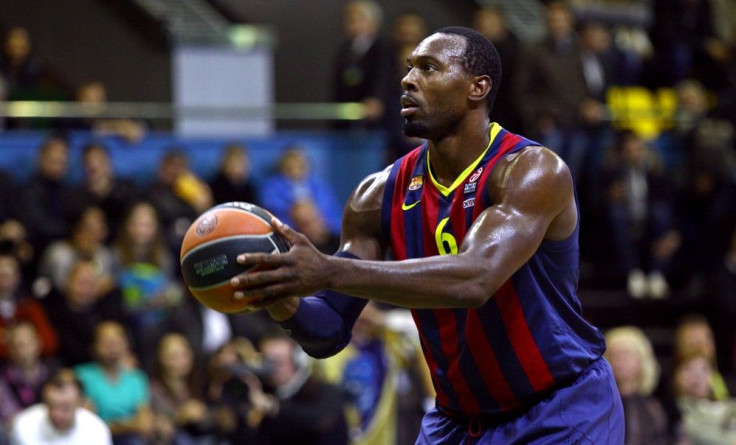Does Fear Of Faliure Lead Athletes To 'Choke'? The Science Behind Buckling Under Pressure

Ask any athlete, and they’ll surely attest to the difference between practice games and the actual competition. It’s all fun until you’re face-to-face with your opponent, trying to keep the ball away from them, while an audience is watching your every move, and your coach is screaming orders. That’s usually when the pressure sets in, and the ball gets fumbled. But a game doesn’t have to be fast-paced, in-your-face for the pressure to cause you to “choke” — think free throws in basketball. A new study finds that the anxiety caused by a fear of failing is enough to lead to a mistake.
“Anxiety in a competitive situation, whether sporting or otherwise, is something everyone can relate to. We’re all familiar with what we call ‘somatic’ anxiety, for example butterflies in the tummy, which is the body’s response to tension, but this study is chiefly concerned with the effects of cognitive anxieties, such as worry or fear of failure,” said lead author of the study Dr. Michael Duncan, of the Department of Applied Sciences and Health at Coventry University in the UK, in a press release. Duncan and other authors of the study will present their findings at the British Psychological Society’s annual conference in Birmingham.
They found that heightened cognitive anxiety during a competition affected the performance of those participating in the activity. Specifically, they found that mechanisms in the brain responsible for catching a ball or striking a moving object (a soccer ball, cricket ball, or rugby ball, for example) went haywire during competition, leading athletes to make mistakes. These mechanisms did not react in the same way during practice.
The findings support the oft-heard “catastrophe theory,” popular among sports coaches and psychologists. To common folk, it’s essentially the tendency of sporting performance to be adversely affected by increases in a players stress and anxiety.
As Jürgen Beckmann, chair of the Institute of Sports Psychology at the Technical University of Munich, explains in a response note to a reader of Scientific American, it’s really just a matter of overthinking things. He describes a study by psychologist Debbie Crews, whose research into golfing found that those who performed poorly while putting under pressure showed more activity throughout the left hemisphere of their brains — the areas that are involved with analytical thinking — while showing far less activity in the right hemisphere, which is tasked with coordination and visual ability.
“Thus, concentrating too intently appears to overshadow other important factors, such as balance and timing,” Beckmann wrote. “Crews concluded that maintaining a balanced brain, in which both hemispheres are working at similar intensities, is ideal.” In general, however, concentrating too hard may be the problem, as it may lead an athlete to overuse specific muscle groups — leading to uncontrolled movement and spasms.
People who are trying to overcome choking (also called the “yips” by Beckmann) may find control by changing the environment in which they perform tasks. In turn, this can “reverse a flawed automatic pilot setting,” Beckmann wrote. He also suggested that athletes tailor their training to address the technical issues that cause them to choke. Or, going for a more novel approach, simply clenching your left fist during competition may be able to activate the right side of the brain, thus balancing activity in both brain regions. If all else fails, however, some athletes “may simply choose to live with their yips,” Beckmann said.
Source: Duncan et al. The British Psychological Society’s Annual Conference. 2014.



























